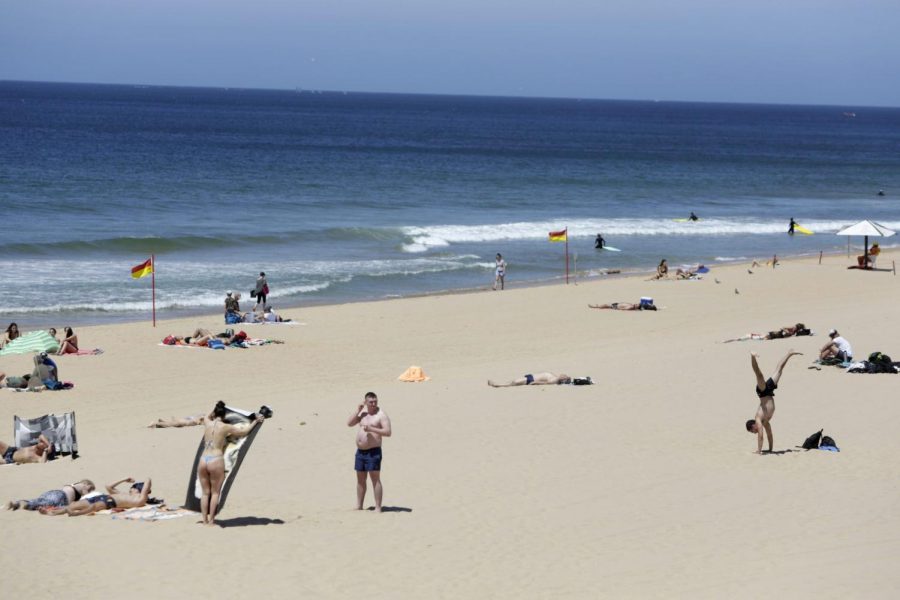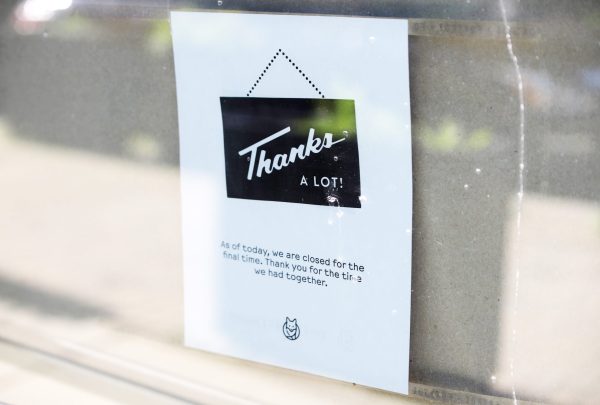COLUMN: Americans should embrace traveling as a sign pandemic end is in sight
People sunbathe at Carcavelos beach near Cascais, outside Lisbon, Friday, June 4, 2021. Britain said Thursday that it is removing Portugal from its list of COVID-safe travel destinations, meaning thousands of U.K. residents currently on vacation there face the prospect of 10 days’ quarantine on return.
For many 2020 struck like a tidal wave — sudden and leaving behind devastation, accompanied with little remembrance of life’s past pleasures. As the waters slowly, but surely recede, America’s past enjoyed practices are beginning to surface once again with travel and vacationing.
“The TSA screened more than 7.1 million people from last Thursday to Monday over Memorial Day weekend — its highest traffic numbers since March of 2020,” Travel+Leisure reported.
While the pandemic that has kept us cooped up for so long is not entirely over, traveling has been embraced by those who feel safe enough to do so in light of decreasing cases and an uptick in vaccinations
With Covid-19 cases dropping nationwide, the enthusiasm to travel by many Americans should be viewed as a positive sign that this nation is approaching a full return to its pre-pandemic self.
Some people are still concerned that because not everyone has displayed a willingness to get vaccinated, travel could result in spikes of the virus. This is valid, however, there are many reasons why Americans should not fear widespread travel this summer.
Nobody is forcing anybody to travel if they still feel unsafe or Covid-19 compromised. An unfortunate side effect of the pandemic was that many people became comfortable with judging others for their health decisions.
Specifically, the usage of masks or lack thereof, resulted in heated exchanges from both sides of the argument. The Center for Disease Control and Prevention (CDC) recommendations for masks were not of priority to some individuals, but that has changed as the CDC is now allowing fully vaccinated individuals to go maskless in most places. Even with the CDC recommendation, the return to travel isn’t at pre-pandemic levels yet, which is good since the pandemic hasn’t been completely conquered.
Furthermore, Americans shouldn’t fear widespread travel because most people are primarily traveling domestically. There has always been more domestic travel than international travel, but, as we encounter the summer, there is a greater imbalance in domestic versus international travel restrictions than usual.
America’s progress isn’t matched by all nations around the world. Specifically, South American nations are being hit hard with Covid-19 cases and deaths right now. Peru and Brazil have amongst the highest deaths per 100,000 across the entire globe, according to CNN Health.
“The CDC continues advising Americans not to travel internationally until they are fully inoculated against Covid-19,” according to the New York Times. However, more than half the world’s countries have reopened to United States tourists.
The global regions accepting American travelers right now are Central America, the Caribbean, Eastern Europe, most of Africa and limited parts of South America, while nearly all of Asia is still closed to American travelers, according to Kayak.
The caveat is that Americans who choose to travel internationally must follow a strict set of rules to be able to enter the nation they are traveling to.
When I went to the Caribbean island of Sint Maarten this spring, I was fully vaccinated. However, traveling required much more than pre-Covid trips outside the country. I was required to be masked, provide proof of a negative test within five days of my arrival, printed documents of a granted approval from the Sint Maarten government and a negative test to return to the United States.
The heightened risks as well as the more complicated process of traveling outside of America is incentivizing travel-hungry Americans to wander within our borders. Other than being less of a hassle, the benefit of this is that declining cases are offering more opportunities to travel within the country.
One product of this is a frenzy for road trips over flying this summer. While flights were the highest during Memorial Day weekend, other than the rises in gas prices and potential environmental ramifications, it seems Americans are finding driving as the safest solution to their travel urges.
“Cars are backing 64 percent of Fourth of July trips and 61 percent for Labor Day trips,” according to a Las-Vegas Review survey of TripIt users.
Finally, traveling this summer should be embraced by Americans because there are mental health benefits and it is a sign that our nation’s spirit is moving forward despite all the troubling challenges the last year had in store.
“Having new experiences is beneficial for improving brain function and boosting your mental health. Travel has been linked to stress reduction and can alleviate symptoms of anxiety and depression,” according to WebMD.
With stress and anxiety at all-time highs during the thick of the pandemic, it should be appreciated that traveling is a possibility once again.
In addition, traveling is a sign that people will connect more with others from various backgrounds and different places across America. That was something not possible last year.
The pandemic is not over yet, and that fact shouldn’t be forgotten, but seeing people hit the road this summer should remind us that we have been through so much but still have a lot of exploring and memory-making left to do.












